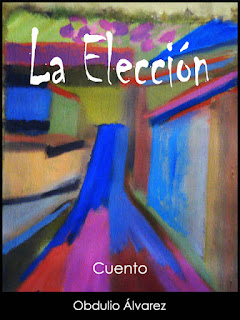A Writer's Library
James Clavell is one of my absolute favorite authors. He primarily writes historical fiction, which is my preferred genre, especially when it's related to the Orient.
I began reading him at the age of 15, during the quiet weekends in Puerto Ordaz. Of his works, the first I encountered was Tai-Pan, which deals with the formation of Hong Kong by the British, narrated through a fictional character: one of the leaders of the largest companies trying to control trade between China and England.
Even then, I was captivated by his affection for and knowledge of the Far East, as well as its culture and customs. Immediately after finishing Tai-Pan, I decided I would read Shogun, a novel with over 1,100 pages that was a worldwide bestseller at the time.
What can I say? Shogun is the novel I have reread the most. For that 15 or 16-year-old boy, it was discovering a new world: medieval Japan; its culture; its vision of life, politics, love, cuisine, and sex; Zen Buddhism. I remember starting to drink black tea when I arrived home from school in the afternoons and sat down to read the novel (at that time, 1982, green tea, called "cha" in the novel, was unknown to me and the merchants of Puerto Ordaz). I tried to perceive the aromas and flavors that the author almost managed to make me experience with his words. I wanted to try Japanese food, which was nonexistent in our country at that time. I remember that while living in Caracas, when I learned about the opening of a Japanese restaurant in El Hatillo, near my house, one afternoon I took the novel with me and sat alone in the restaurant to order a sample of each dish they had on the menu. It was a very intimate meal, in a Japanese atmosphere, alongside the author's words. I wanted to pay him that honor.
After reading Shogun, I made an effort to find King Rat: Clavell's first novel, which he wrote under the pseudonym Les Daniels. It's about an American in a Japanese concentration camp. Excellent. Later, I read the two volumes of his other bestseller, Noble House, which is a projection of the family and company of Dirk Struan, the main character of Tai-Pan, in 1960s Hong Kong. Gai-Jin, Whirlwind (about Iran at the fall of the Shah), are other of his novels that I have enjoyed.
But, to be honest, none like Shogun. I reread it at the end of last year. I hope my words do justice to those of one of the authors in my library; that they encourage you to read his works.
I must add that his works are truly special because they include a wealth of quality historical information. His characters are capable individuals with adult and brilliant ideas, who reach sensible conclusions, without differentiating between sides. In his books, I haven't found, as is so common in fiction, that an idiot who evaluates life based on the opinion of the majority ends up victorious. Nor are there good guys and bad guys, only people with different interests and visions of life, although of course the author leans towards the side that his protagonist follows or leads. And Clavell has the ability to express the philosophy of the peoples he writes about through simple, very Zen-like examples. For instance, there's an action I always remember from Shogun: the protagonist, an English captain leading a Dutch ship that runs aground in Japan (in the novel, the first foreign ship not Spanish or Portuguese to arrive in that country), is waiting for the arrival of the Daimyo, the feudal lord. He asks the village chief when the Daimyo will arrive. The village chief says he doesn't understand the question. He repeats it, and the chief, still not understanding, replies that the Daimyo arrives when he arrives, clearly expressing the Zen vision where wanting to predict or worry about what will happen makes no sense, and it didn't even cross their minds: "The Daimyo arrives when he arrives." In other words: Don't bother me with foolishness. Attend to something else and stop wasting time.








